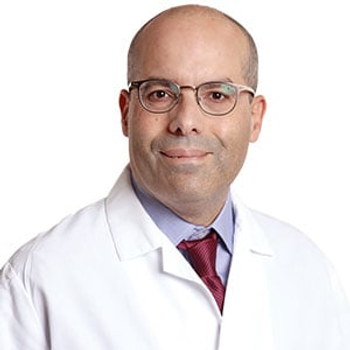
Brexu-cel Yields Robust Responses in Pretreated R/R Mantle Cell Lymphoma
Median overall survival appears to be higher in patients who were previously treated with relapsed/refractory mantle cell lymphoma and who receive brexucabtagene autoleucel compared with standard therapy.
Treatment with brexucabtagene autoleucel (brexu-cel; Tecartus) produced improvements in responses and survival compared with non–chimeric antigen receptor (CAR) T-cell standard therapy for patients with relapsed/refractory mantle cell lymphoma (MCL) who received prior treatment with a Bruton tyrosine kinase (BTK) inhibitor, according to findings from a systematic literature review and meta-analysis.
Investigators estimated an objective response rate (ORR) of 88.6% (95% CI, 85.7%-91.2%; I2 = 0.0%) in 546 patients who received brexu-cel across 7 studies. Additionally, the 6-month overall survival (OS) rates ranged from 79% to 93% across 5 studies, and the estimated median OS was 32.1 months (95% CI, 25.2-41.2) in 371 patients. The 6-month PFS rates ranged from 58% to 83% in 6 studies with available data on PFS; investigators estimated a median PFS of 14.9 months (95% CI, 10.5-20.9) in 418 patients across 6 studies.
For 414 patients across 13 studies who received standard post-BTK inhibitor therapy, the estimated ORR was 45.3% (95% CI, 33.9%-56.9%; I2 = 80.0%). The median OS reported in 14 studies including 1080 patients ranged from 2.5 to 19.4 months; based on 10 studies including Kaplan-Meier curves for OS, investigators estimated a median OS of 9.1 months (95% CI, 7.3-11.3) among 669 patients. The median PFS ranged from 1.9 to 10.1 months based on available data for 169 patients across 5 studies, and investigators estimated a median PFS of 7.6 months (95% CI, 3.9-14.6) based on Kaplan-Meier curves published in 3 studies including 80 patients.
“Although the treatment landscape for post-BTK [inhibitor relapsed/refractory] MCL standard therapy is composed of several intervention strategies and significant heterogeneity, the outcomes of patients treated in this setting are consistently defined by an unmet clinical need,” the study authors wrote. “In contrast, clinical outcomes with brexu-cel are robust, with high rates and durations of response as well as extended survival compared with non-CAR T-cell standard therapy.”
Investigators of this systematic literature review and meta-analysis characterized the clinical unmet need of patients with relapsed/refractory MCL who received a non–CAR T-cell standard therapy after BTK inhibitors and evaluated the outcomes of these patients compared with those who received treatment with brexu-cel following BTK inhibitors.
MEDLINE, Embase, CENTRAL, and relevant conferences were used to identify trials and observational studies focused on adult patients who received brexu-cel or standard therapy following BTK inhibitors for relapsed/refractory MCL. Investigators assessed outcomes of interest including OS, PFS, ORR, and duration of response. In the meta-analysis portion of the study, investigators used survival function parameters on pseudo-individual patient data based on digitized curves to synthesize OS and PFS outcomes wherever Kaplan-Meier curves were published.
Investigators conducted a literature review that concluded in October 2022, which yielded 1460 records. Subsequent screening refined the number of eligible publications to 52, which focused on 26 relevant studies. Of these studies, 19 assessed standard therapy across 1238 patients, and 7 evaluated treatment with brexu-cel in 607 patients.
Evidence from 23 of the studies originated from observational studies. Two trials highlighted outcomes with standard therapy, and there was 1 single-arm trial that assessed the efficacy of brexu-cel.
These findings were presented in a poster at the
Reference
Dreyling M, Shah B, Wu J, et al. Unmet need in relapsed/refractory (R/R) mantle cell lymphoma (MCL) post-Bruton tyrosine kinase inhibitor (BTKi): a systematic literature review and meta-analysis. Presented at: 2023 Society of Hematologic Oncology (SOHO) Annual Meeting; September 6-9, 2023; Houston, TX; abstract MCL-373.
Newsletter
Stay up to date on recent advances in the multidisciplinary approach to cancer.




















































